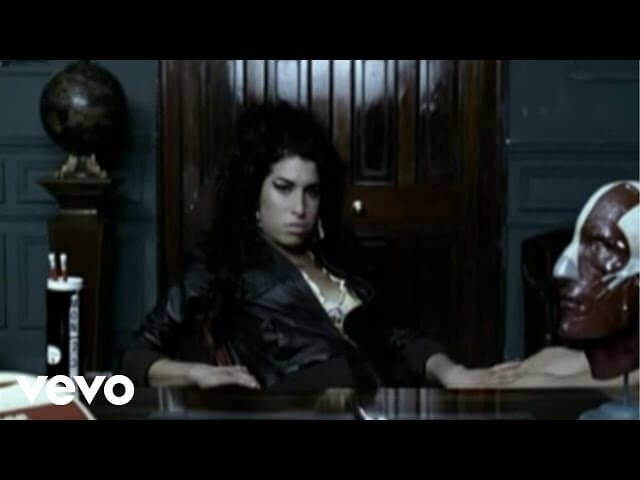R.I.P. Amy Winehouse

British pop singer Amy Winehouse was found dead Saturday at her home in London. She was 27. The cause of death is not yet known. Two ambulances were sent to Winehouse’s residence in North London at 4 p.m., and arrived after she died. It’s not clear how long she was deceased before she was discovered.
It’s too early to draw conclusions about Winehouse’s tragically early demise, but given how troubled her life has been since the success of her fantastic 2007 album Back To Black, it’s likely that the Amy Winehouse story for now and forever will be depicted as yet another cautionary tale about the pitfalls of “too much too soon.” That she died at the same age as so many other characters in this ongoing saga—including Robert Johnson, Brian Jones, Jimi Hendrix, Janis Joplin, Jim Morrison, and Kurt Cobain—gives this latest chapter a queasy symmetry that could restore the luster to the Amy Winehouse name that’s been lost in recent years. Now that she's burned out, she will not fade away.
If that comes across as cynical, well, Winehouse was treated with a lot of cynicism as her life appeared to slowly circle the drain, and then struggle in vain to crawl up out of it. Because no matter how many post-mortem tributes her music and (mostly unrealized) reservoir of talent inspires now that she’s gone, the fact is that Amy Winehouse spent much of her time in the spotlight as a cheap punchline for the media and millions of pop-culture rubber-neckers. That the self-aware “Rehab” was Winehouse’s best-known song—it won her three Grammys in 2008, for Record Of The Year, Song Of The Year, and Best Female Pop Vocal Performance, to go along with trophies for Best New Artist and Best Pop Vocal Album for Back To Black—suggested that she had some perspective on her public persona. But the world kept on laughing long after the joke stopped being funny.
A 2008 Rolling Stone profile showed a woman in desperate need of help, living a junkie’s life in a garbage-covered flat. There were tabloid reports of Winehouse wandering around London barefoot in a bra and jeans. She appeared in embarrassing videos online, one with Pete Doherty (essentially Winehouse’s male counterpart) playing with mice, another where she sang a racist nursery rhyme. Just last month, Winehouse canceled a European tour after a disastrous concert in Serbia marred by dropped lyrics and loud booing from thousands of fans. Each instance of Winehouse publicly fucking up her life and career was fresh fodder for Amy Being Amy, a true-life Saturday Night Live skit that seemed to go on even after most people lost interest.
If you love Winehouse’s music—and let the record show that Amy Winehouse created one of the great pop records of the last decade in Back To Black—it’s easy to lash out at the media (as well as much as the public) for the cruelty it showed her in the final years of her life. But ultimately the saddest and most infuriating thing about all this is that Winehouse herself didn't—because she either would not or could not—prevent the wasting away of so much talent.
Winehouse displayed a knack for performing from an early age in the north London suburbs, forming a rap group at age 10 called Sweet ‘n’ Sour—which she later called “the little white Jewish Salt ‘n’ Pepa”—and attending the Sylvia Young Theatre School, a prep academy for young actors and singers. Winehouse later signed with British pop magnate Simon Fuller of Pop Idol fame, but she stubbornly went her own way in music, releasing her jazzy debut Frank in 2003. The album was a hit in Britain and earned a Mercury Music Prize nomination, but it wasn’t until Back To Black that she really blew up on an international level. The album, which has sold 2 million copies in the U.S. and close to 3 million in the U.K., came after an extended period of writer’s block and romantic turmoil with her boyfriend. A gifted songwriter as well as a knockout singer with a voice that exuded toughness and a wounded vulnerability just beneath the rough exterior, Winehouse poured her heartbreak into stunning songs like “You Know I’m No Good,” “Love Is A Losing Game,” “Wake Up Alone,” and “Rehab,” a defining mid-’00s single that unfortunately informed the cartoonish persona that Winehouse was never able to escape.
The body of work Winehouse leaves behind is criminally small, but what’s there is still worth celebrating. Because after all the headlines and letdowns and humiliations and cheap shots, what remains are some really great songs full of heart, pain, grit, balls, fists, tears, and a sturdy humanity that will live on once all the bullshit dissipates.